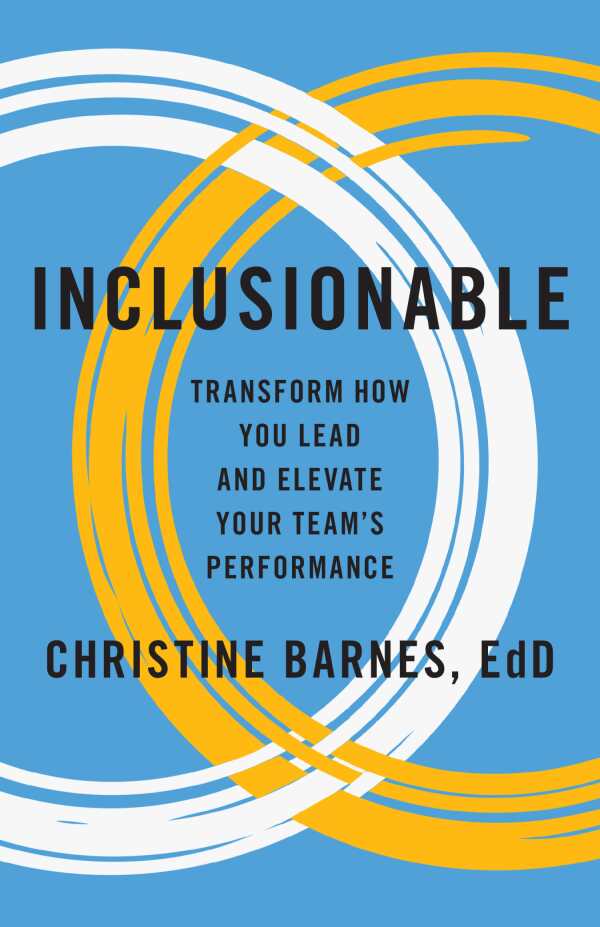Inclusionable
Transform How You Lead and Elevate Your Team’s Performance
The humane leadership guide Inclusionable dissects effective inclusivity implementation efforts in a thorough and persuasive manner.
Christine Barnes’s pragmatic business guide Inclusionable illustrates the strategic benefits of leading as an agent of change.
Arguing that leaders who model inclusive behavior have more engaged employees who feel a sense of belonging, psychological safety, and value, the book argues that actively incorporating diverse perspectives is necessary, “even if DEI programs have been discontinued.” Its tone positive and transparent, it draws on Barnes’s three decades of organizational development and coaching expertise to propose commonsense, inclusive workplace practices. It addresses a range of topics, including a leader’s sense of self-awareness and intentional practice and how inclusivity operates at the individual, team, and organizational levels.
The book dissects inclusivity implementation efforts in a thorough manner, and it even explores how to leverage artificial intelligence to inclusive ends. Reflection questions and action items including journaling, doing a 360-feedback review, and establishing weekly employee recognition moments appear at regular intervals to reinforce the book’s points. However, the frequency with which key points are summarized also leads to some redundancy.
Some of the book’s takeaways are quite familiar, leaning into common leadership themes without refreshing them enough to reflect the topic, as where it discusses self-assessments, building and leading effective teams, and improving interpersonal communications. In reprising these broad themes, it loses focus. More effective is the advice it issues on topics like using AI to aid in inclusion initiatives—for example, for direction in coaching conversations, or when it comes to data analysis of workplace sentiments. Elsewhere, its introductions to trusted self-assessment tools and team-building models are elucidating, showcasing the diversity of available resources; however, such outside models are overexplained at times, creating distance from the book’s own central message.
Interviews with biotechnology company executives, case studies, and outside research are used to support the book’s arguments in a persuasive manner, as with a leader’s thoughts on the “discipline of listening”: “I really try to listen better every day. It’s like homework … I have to remind myself to focus on what others are saying before jumping to conclusions.” The text also includes a heartening six-month timeline for integrating inclusive practices into one’s own organization. Its encouragements toward empathy, active listening, and introspection are heartening, and its promotion of humility as a notable trait of inclusive leaders is memorable. Barnes’s own candid, vulnerable assessments of how bias and outside perceptions have impacted her own career interactions are illuminating, too, as is her acknowledgement that she has been guilty of exhibiting flawed attributes as a leader herself.
A thoughtful leadership guide, Inclusionable is about improving organizational practices that encourage “participation and belonging” in an intentional—and strategically beneficial—manner.
Reviewed by
Katy Keffer
Disclosure: This article is not an endorsement, but a review. The publisher of this book provided free copies of the book and paid a small fee to have their book reviewed by a professional reviewer. Foreword Reviews and Clarion Reviews make no guarantee that the publisher will receive a positive review. Foreword Magazine, Inc. is disclosing this in accordance with the Federal Trade Commission’s 16 CFR, Part 255.

